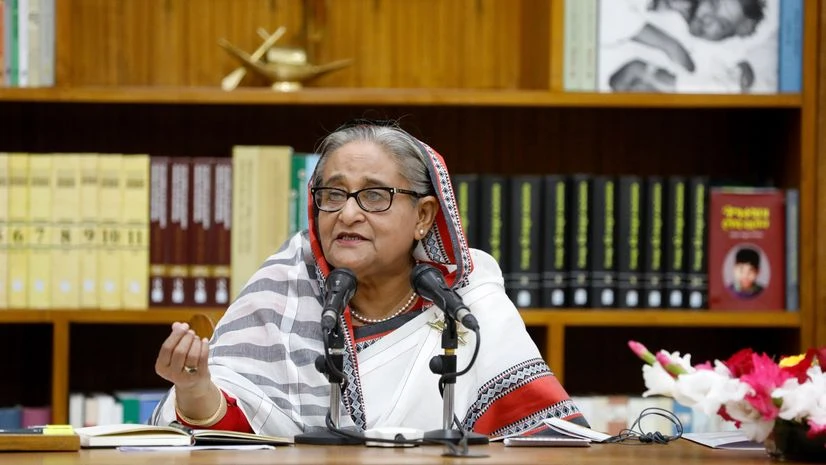Ousted Bangladesh Prime Minister Sheikh Hasina, who fled to India on August 5, has been living in a safe house in New Delhi's Lutyens' Bungalow Zone for over two months, under an arrangement made for her by the Government of India, ThePrint reported on Thursday.
The safe house is reportedly suited to her status and is a full-sized Lutyens' bungalow -- the type that is typically allotted to ministers, senior Members of Parliament (MPs), and top officials.
With appropriate security measures in place, 77-year-old Hasina occasionally takes walks at Lodhi Garden, added the report, citing unnamed sources.
One source confirmed that Hasina "has a strong security detail", adding that plain-clothes personnel guard her "around the clock".
Speaking to the news portal, the source explained that Hasina is receiving this level of protection "as a dignitary".
More From This Section
Hasina and a few of her close associates flew to Ghaziabad's Hindon air base on a Bangladesh Air Force aircraft late on August 5, after she resigned following weeks of deadly anti-government protests that resulted in over 400 deaths.
However, according to the report, Hasina left the airbase within two days. Another source told the news portal that the ousted Prime Minister could not have stayed at the airbase for too long because the "arrangements there were not sufficient". As a result, she was relocated to a safe place within a few days, and a house in the secured Lutyens' Delhi area was arranged for her.
The Lutyens' Bungalow Zone is a high-security area where many current and former MPs reside.
While New Delhi has not formally disclosed Hasina's location, External Affairs Minister S Jaishankar told Parliament in August that she had sought permission to come to India "for the moment".
ThePrint report noted that the Ministry of External Affairs had not responded to its queries in this matter at the time of filing.
Hasina's stay in India has strained ties with Bangladesh, where informal calls for her extradition have been raised. Dhaka has also revoked Hasina's diplomatic passport.
Last week, Bangladesh's International Crimes Tribunal (ICT) issued arrest warrants for Hasina and 45 others, including senior Awami League leaders, in connection with alleged crimes against humanity during the student protests in July and August that led to her ouster.
According to media reports, Hasina and other Awami League leaders face more than 60 complaints of crimes against humanity and genocide. The ICT has directed Bangladeshi authorities to arrest all 46 individuals and present them before the court by November 18.
India and Bangladesh have a bilateral extradition treaty in place that could permit Hasina's return to face a criminal trial.
However, a clause in the treaty allows for refusal of extradition if the offence is of a "political character".

)